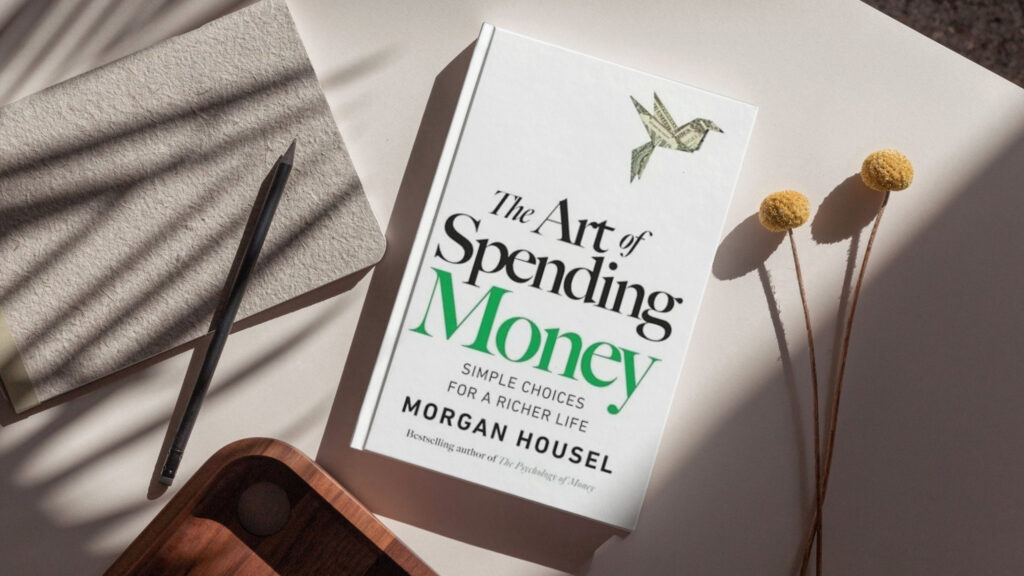20 Timeless Money Lessons That Will Change How You Think About Wealth
Money isn’t just numbers — it’s emotions, habits, and human behavior. That’s why two people with the same paycheck can end up with completely different financial futures. In his best-selling book The Psychology of Money, Morgan Housel reveals that true wealth is less about intelligence and more about mindset.
Here are 20 timeless lessons that can reshape the way you think about money.
1. Behavior > Intelligence
Your financial success depends less on your IQ and more on how you behave with money — patience, discipline, and consistency win over brilliance.
2. Create a Personal Framework
There’s no one-size-fits-all formula for wealth. Build financial rules and habits that match your life, values, and goals.
3. Respect Luck and Risk
Don’t over-credit success to your skill or blame failure entirely on mistakes. Luck and risk play a bigger role than most people admit.
4. Wealth Is What You Don’t See
Fancy cars and luxury items show spending, not wealth. Real wealth is hidden — it’s savings, investments, and assets that grow quietly.
5. Compounding Is Magic
Small consistent gains grow into massive results over time. The longer your money stays invested, the harder compounding works for you.
6. Freedom Is the Ultimate Goal
Money isn’t about buying more things — it’s about buying control over your time, choices, and future.
7. Save Without a Reason
Don’t just save for retirement or emergencies. Save simply to create options, flexibility, and peace of mind.
8. Enough Is Enough
Chasing endlessly for more will keep you unhappy. Know your “enough” and stop running the race of comparison.
9. Avoid Lifestyle Inflation
As income rises, don’t let your spending rise with it. Otherwise, you’ll always feel stuck no matter how much you earn.
10. Risk Looks Different to Everyone
What feels safe to one person might feel risky to another. Respect individual perspectives when it comes to money decisions.
11. Never Underestimate Survival
Staying in the game matters more than hitting jackpots. Avoid decisions that could wipe you out financially.
12. Long-Term > Short-Term
Markets are noisy in the short run. Wealth is built by thinking decades ahead, not reacting to daily headlines.
13. Avoid Extremes
You don’t need to be 100% frugal or 100% aggressive. A balanced approach is more sustainable and less stressful.
14. Control Your Ego
Wealth isn’t about showing off. The moment you use money to impress others, you lose control of it.
15. Stories Drive Decisions
We make money choices based on stories we tell ourselves, not spreadsheets. Be aware of your narrative.
16. Wealth Is a Marathon
Financial success comes from endurance. Most people quit too early because they underestimate how long it takes.
17. Be Humble with Forecasts
Nobody knows the future of the market. Avoid overconfidence — humility keeps you safe.
18. Consistency Beats Brilliance
Getting rich requires taking risks. Staying rich requires caution. The blend of both builds lasting wealth.
19. Emotions Rule Money
Fear and greed drive markets more than logic. Learn to manage your emotions, and you’ll make better financial choices.
20. Happiness > Riches
At the end of the day, money is a tool to create a better life. If wealth doesn’t bring joy, freedom, and peace, it’s meaningless.
Final Thought
The Psychology of Money teaches us that money is not about being the smartest person in the room. It’s about staying patient, controlling emotions, and focusing on what truly matters. Apply these lessons, and you’ll not only build wealth — you’ll build freedom, stability, and happiness.



